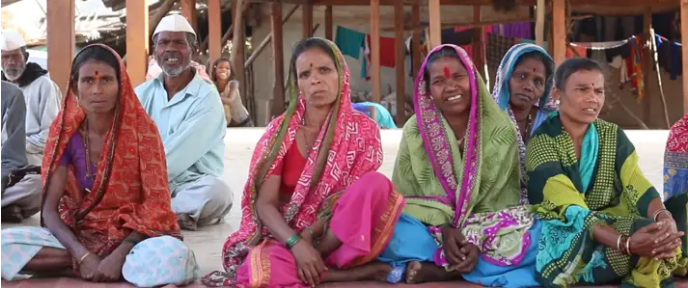Soot Semee is helping refugee communities in Northern Uganda to protect children at risk. It is vital that community members know they can trust child protection service providers.
Closing the Physical Distancing gap
World changers from a small town
Change made real through a neighbour's voice
Rising voices in Omugo Zone
In January 2020, the Soot Semee team in Northern Uganda handed out first Soot Semee podcasts on memory cards to a community of South Sudanese refugees. At the same time, they distributed speakerboxes so that over 100 groups of around 10-20 people each can listen to the podcasts together. One of the community members said …
"It can't be done! "
“It can’t be done” is a phrase the New Dawn community services group won’t accept!
They’ve heard it said that local women can’t talk on the media about topics that are considered shameful in their culture. Determined to see women in their village able to have more control over their health, the team have come up with a solution.
Revitalising audio ... smart speakers, podcasts and speakerboxes
Voice activated speakers like the Google Home and Amazon’s Echo Dot have triggered renewed interest in audio media and boosted the popularity of podcasts according to Reuters Institute. In some places where HCR partners are working, portable speakers with digital audio are key sources for information and entertainment. Increasingly HCR partners are using speakerboxes where there are restictions on using FM radio…
The Next Ten
Eighteen months ago, Nanda could not read or write - today she regularly reads stories to her parents! The ADIVASI VOICES PROJECT is changing the lives of Nanda and others in her remote tribal community in Maharashtra, India. Her teacher says, "Thanks to the project there is now 100% school attendance and there are more girls in school than boys. You have helped parents see the value of education.”
Soot Semee (Voice of Compassion) begins ...
Adivasi Lives Matter
In today's tech savvy world, information is just a click away with our mobile phones and computers, or if those aren't in reach, our televisions and even radios all help keep us informed. But what if we didn't have any of these available to us? How would we find out important health and community information? HCR has been working in partnership with Seva Social Welfare Foundation in remote parts of India’s Maharashtra state, home to many indigenous groups known as Adivasis.
Village Gets a New Voice
It’s hard to find many places on the planet today that don’t have access to some form of media. However in remote parts of India’s Maharashtra state, many indigenous tribal or Adivasi communities don’t have access to radio, television or even mobile ‘phones. Many can’t read.
It’s for that reason that HCR, in partnership with Seva Social Welfare Foundation, has begun a project to distribute “speaker boxes” with content that will transform lives.


